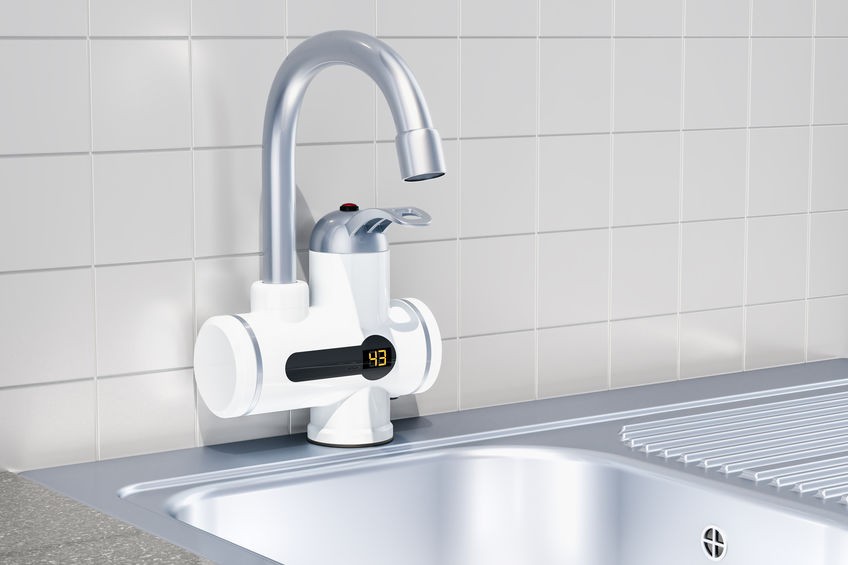
Hot water is a vital part of your everyday life, and having it as quickly as possible is often essential. No one likes having to wait for the shower to heat up, or running out of water when you’re doing the dishes. Nowadays, convenience is king, so you may be thinking about ways in which you can enjoy hot water more easily.
Have you been considering an instant hot water system? With many pros and cons to consider, you may be wondering what you need to know to decide whether an instant hot water system is even worth it. After all, isn’t it better to stick with what you know?
Here, you can discover more. Otherwise known by the name “continuous flow water heater”, these systems are becoming increasingly popular and beloved by families everywhere. Could you be ready to make the switch? Read on to find out more.
Instant hot water might sound like a dream come true, but how do such systems even work? They are widely loved because they heat water as and when you require it, rather than a storage tank heater. In a traditional water heater with a cumbersome and large storage tank, the heated water is stored for you until you require it – this means that the whole tank will be heated up. This can be incredibly energy consuming, with electric systems potentially costing two times the cost of instant hot water.
Instant hot water systems are not electric as a general rule, though you can occasionally find an electric heater, but are rather powered by gas. They are mounted to the wall for a sleek look, and the water is heated when you turn on your tap. While you are running your tap, the water keeps heating until you turn the tap off. As you are not heating an entire tank of water, this is considered a more energy-efficient measure, especially when you consider a natural gas version. If you live in an area without natural gas, you can always enquire about an electric system.
As with any relatively new technology, there are questions about the safety of instant hot water systems – mostly by those who are used to using storage tank systems. However, you may be surprised to discover that they are in fact often safer than the bulkier systems. They have a lower risk of corrosion, as they do not store any water, so you should not find rust in the water or bacteria growth.
Storing water makes it more likely to grow bacteria, which can be incredibly harmful to your health. You will also find that as the water is not generally heated to such a high heat level, your risk of being scalded reduces. You can set the thermostat to the required level – usually 50°C, with no need to mix in cold water in the system itself.
This system comes without a tank, so it can work for a wide range of home and family sizes. For example, a large storage tank might not be suitable for a smaller home (such as an apartment block or those with very limited space outside), but an instant hot water system can fit in more easily. There is not a certain specified size necessary to meet the size of your home, however.
You will instead need to consider the flow rate of the system, and how this measures up to your needs. Flow rates can be a little confusing, but the basic concept is that you will see flow rates between 10 and 32 litres of water per minute. You will require a higher flow rate for a larger home, with more people.
It is a good idea to take into account how many people in your home will be showering simultaneously and whether these showers have water-saving heads attached. You should also look at if you are regularly using hot water in your kitchen and laundry room appliances, and if these are often running at the same time as people are showering.
Considering these factors ahead of time ensures that you will get the correct flow rate for your home. This can help to save money both in your initial costs and later on.
Of course, as a homeowner you want your household equipment to stand the test of time as much as possible. This can help you to save money and keep you from the hassle of replacing items sooner than you want. You may know that a storage tank system has an average lifespan of up to twelve years as long as you keep the system maintained properly. However, as we have mentioned, as they begin to wear away, you may notice rust in your water, increased bacteria growth, or even a failure to heat your water altogether – which is far from convenient.
While twelve years may seem like a long time, you might be surprised to discover that instant hot water systems can last you as long as twenty years. To take advantage of this length of service, though, you will need to regularly service your system in order to detect any issues that might occur.
As well as looking at the lifespan of your system, you are probably also curious about whether an instant hot water system will save you money. Especially since the upfront costs of installing one can seem steep. However, you quickly begin to make savings because you are no longer heating up a full tank of water that you may or may not use. These savings are compounded by the fact you will not have to worry about heat loss occurring since the system is tankless.
When combined with the increased lifespan of the system, and the reduction of general upkeep, it looks good for those essential savings. Not only that, but you will be giving the environment a helping hand too, by reducing the carbon emissions created by your water system. That sounds like a win all around!
Are you ready to invest in a new instant hot water system? They sound pretty much perfect, right? Well, there are still some downsides that you may want to think about before taking the plunge and deciding whether this new system is worth it.
The flow rate that we mentioned earlier may not be able to keep up with your family if it is especially large, or you find yourself running multiple hot water sources at the same time (such as showers and dishwashers). This can lead to a reduction in water pressure that might leave you unhappy with your system’s performance.
As you may have guessed, the water is not truly instant. There is a slight delay between your tap turning on and the heat rising to the temperature you want. While this is fairly quick, this does mean that you are running water you may not want while waiting for it to heat up.
You must also ensure that your system is fitted correctly and that all your fixtures are suitable for it – this can help to save on any water pressure issues or water not heating in certain fixtures and fittings.
However, overall, many of these issues are easily fixed – and you may still decide an instant hot water system is worth it!
Are you interested in the potential of an instant hot water system? Or just discussing what the best option for you might be? Get in touch with Andrew J Robertson Plumbing to get the best advice and equipment to ensure that you can enjoy more hot water with a great new system.

Professional local plumbers you can trust. Call us for your domestic plumbing needs and you will not be disappointed.
Andrew J. Robertson Plumbing

Are you looking for a reliable professional for your plumbing needs?
Simply fill in the form below,
or call 0422 101 331.
"*" indicates required fields
Fill in this short form (takes 61 seconds) and we’ll contact you shortly.